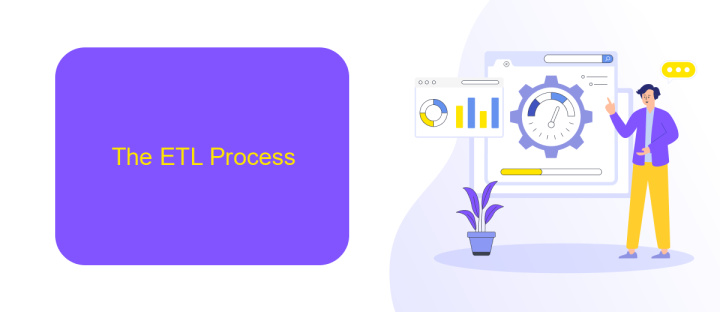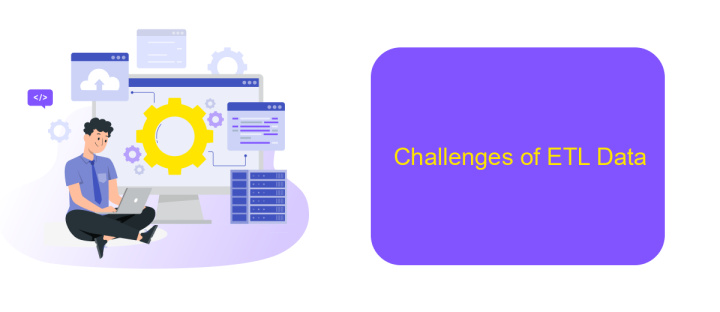Define ETL Data
ETL, an acronym for Extract, Transform, Load, is a fundamental process in data management and warehousing. It involves extracting raw data from various sources, transforming it into a suitable format, and loading it into a target database or data warehouse. This article delves into the intricacies of ETL, its significance, and best practices for effective implementation.
What is ETL Data?
ETL data refers to the process of Extracting, Transforming, and Loading data from various sources into a centralized data warehouse or database. This process is crucial for organizations to consolidate disparate data, enabling better decision-making and data analysis. ETL ensures that data is cleansed, formatted, and integrated, making it more accessible and useful for business intelligence and analytics.
- Extract: Data is collected from multiple sources, such as databases, APIs, and flat files.
- Transform: The data is cleaned, formatted, and transformed to meet the requirements of the target system.
- Load: The transformed data is loaded into a data warehouse or another target system for analysis and reporting.
Using services like ApiX-Drive can streamline the ETL process by automating data integration from various sources. ApiX-Drive allows businesses to set up integrations quickly and efficiently, reducing the need for manual data handling and ensuring data consistency across platforms. This enhances the overall efficiency of the ETL process, allowing organizations to focus on deriving insights from their data.
The ETL Process

The ETL process, which stands for Extract, Transform, Load, is a crucial methodology in data management and integration. During the extraction phase, data is collected from various sources such as databases, APIs, and flat files. This raw data is often unstructured and requires significant processing before it can be useful. The transformation phase involves cleaning, filtering, and structuring the extracted data to meet the specific requirements of the target system. This may include converting data types, removing duplicates, and applying business rules to ensure consistency and accuracy.
The final phase, loading, involves transferring the transformed data into a target database, data warehouse, or another storage system where it can be accessed for analysis and reporting. Tools like ApiX-Drive can facilitate the ETL process by automating data extraction from multiple sources and ensuring seamless integration. ApiX-Drive offers a user-friendly interface and pre-built connectors, which simplify the setup and maintenance of data pipelines, making it easier for organizations to manage their data efficiently.
Why ETL Data?

ETL (Extract, Transform, Load) data processes are essential for organizations that need to consolidate data from multiple sources into a single, coherent data warehouse. This integration allows for better data analysis, reporting, and decision-making. ETL processes ensure that data is accurate, consistent, and up-to-date, which is crucial for maintaining the integrity of business operations.
- Data Integration: ETL processes enable the seamless integration of data from various sources, such as databases, APIs, and flat files, into a unified data warehouse.
- Data Quality: ETL tools help cleanse and transform data, ensuring accuracy and consistency, which is vital for reliable analysis.
- Efficiency: Automating ETL processes reduces manual effort and minimizes errors, saving time and resources.
- Scalability: ETL solutions can handle large volumes of data, making them suitable for growing businesses.
- Compliance: ETL processes help ensure that data management practices comply with industry regulations and standards.
For businesses looking to streamline their ETL processes, services like ApiX-Drive can be invaluable. ApiX-Drive simplifies the integration of various data sources, allowing for automated data extraction, transformation, and loading. This makes it easier for organizations to maintain high-quality data and make informed decisions based on accurate information.
Challenges of ETL Data

ETL (Extract, Transform, Load) processes are critical for data management, but they come with numerous challenges. One of the primary issues is data quality. Ensuring that the extracted data is accurate and clean before transformation is vital, yet it is often complicated by inconsistent data sources.
Another challenge is the complexity of data transformation. Converting data into a usable format requires sophisticated algorithms and significant processing power. This can be particularly problematic when dealing with large datasets or real-time data streams.
- Data Quality: Ensuring accuracy and cleanliness of data.
- Transformation Complexity: Managing sophisticated algorithms and processing power.
- Integration Issues: Seamlessly connecting various data sources.
- Scalability: Handling increasing volumes of data efficiently.
Integration issues also pose a significant challenge. Seamlessly connecting various data sources can be difficult, especially when dealing with legacy systems. Tools like ApiX-Drive can simplify this process by providing a user-friendly interface for setting up and managing integrations. Lastly, scalability is a concern as the volume of data grows, requiring robust infrastructure and efficient processing techniques to maintain performance.
- Automate the work of an online store or landing
- Empower through integration
- Don't spend money on programmers and integrators
- Save time by automating routine tasks
Tools for ETL Data
When it comes to ETL (Extract, Transform, Load) processes, having the right tools is crucial for efficient data handling. Popular ETL tools include Apache NiFi, Talend, and Microsoft SQL Server Integration Services (SSIS). These tools offer robust functionalities for data extraction, transformation, and loading, ensuring data consistency and integrity. They support various data sources and formats, making them versatile for different business needs.
For seamless integration and automation, services like ApiX-Drive can be invaluable. ApiX-Drive simplifies the process of connecting different applications and automating data workflows without requiring extensive coding knowledge. It provides a user-friendly interface for setting up integrations, allowing businesses to streamline their ETL processes effortlessly. By leveraging such tools and services, organizations can enhance their data management capabilities, ensuring timely and accurate data delivery for better decision-making.
FAQ
What is ETL in data processing?
Why is ETL important for businesses?
What are the common challenges in ETL processes?
How can businesses automate ETL processes?
What are the key components of an ETL tool?
Apix-Drive is a universal tool that will quickly streamline any workflow, freeing you from routine and possible financial losses. Try ApiX-Drive in action and see how useful it is for you personally. In the meantime, when you are setting up connections between systems, think about where you are investing your free time, because now you will have much more of it.


